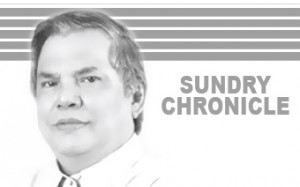A plutocracy is defined as a government by the wealthy. Our constitution says that our government is a democracy. U.S.A. President Abraham Lincoln defined democracy as a government of the people, by the people, and for the people.
In a democratic government we can expect the poor, the middle income, and the wealthy to be part of the government. However today the election process is very expensive and generally the wealthy or those who have money will be elected.
Spanish Era
During the Spanish era there was only an election for the Gobernadorcillo or Town Mayor. The electors were six (6) incumbent Cabeza de Barangay (Head of Family Groupings) and six (6) former Cabeza de Barangay. The election was supervised by the Provincial Governor if available. The supervision was usually delegated to the Parish Priest, who in the first place had the power to approve or disapprove the elected Gobernadorcillo.
The Gobernadorcillo had a term of one year. Later on it became three (3) years. His main duty, together with the Cabeza de Barangay (Bis: Ginhaópan), was to collect the taxes. If their constituents could not pay the taxes, the local officials will subsidize the taxes with their own money to prevent their relatives to be put in prison.
So by force of circumstance the people will select the Ginhaópan or Cabeza de Barangay from the wealthy families. It was also because the Ginhaópan will spend his own money to receive and entertain visitors to their place.
American Era
The American introduced in the Philippines a type of government that they call representative democracy.
Elections were held with the Americans shouldering the expenses. The Americans did not care whether the elected official was rich or poor. The requirement was proper age, residence in the place, know how to read and write, and he had property.
By tradition the wealthy were the ones who can send their children to school. The literacy and property requirement made the wealthy got elected.
During election time the candidate will gather and feed his supporters. Some would have special classes to teach the voters how to write the names of the candidates. Only the wealthy can do all these activities.
Situation Today
In our modern election the major expense is the advertisement of one’s candidacy. A 30 seconds advertisement in national television will cost around P300 thousand. A candidate for President will spend billions of pesos for his campaign. Candidates for senators will spend about 50 Million and upwards to have a chance of winning.
Those who will run for Congressman must at least prepare P10 Million for his campaign. In some places it will reach at least P200 to P300 Million. Candidates for City Mayors will spend similar to that of a Congressman. Candidates for Town Mayors must prepare at least P1 Million and above.
These expenses that I cited do not include the final day expenses of the inangayan.
We can see that to run for an elected office you need plenty of money. In other words you must be wealthy.
Therefore those who will be elected are wealthy. A government run by the wealthy is called “Plutocracyâ€.
Inangayan Logic
In the United States of American an election day is not a holiday. It is a normal working day.
In the Philippines an election day is a holiday. Therefore a voter lost a day’s earning. Add to it the expenses for transportation, meals, etc. in the process of voting, the voter lost some more money.
It is a natural instinct of a person to wish that his losses in money will be replenished. If he will be offered a “per diem†or money allowance for his losses and expenses, naturally he will incline to vote for the candidate that offers the “per diemâ€. The inangayan is viewed as a “per diem†in voting.
Now the “political pot†is boiling and we already hear political deals worth millions of pesos in Bohol. These are deals done only by the wealthy and therefore our government will be a plutocracy. I do not make conclusions whether plutocracy is good or bad for Bohol and the Philippines. It is up to the reader to make the analysis.
Anyway, our plutocracy is part and a consequence of how we implement our democracy. (By Jes B. Tirol)

